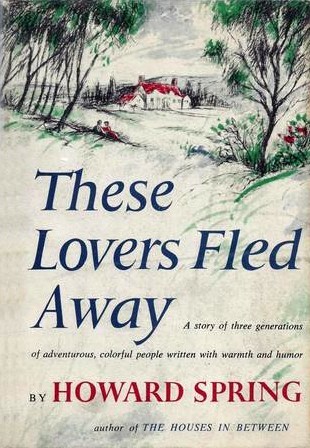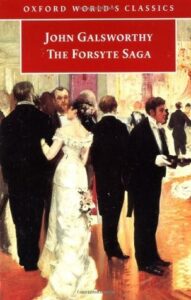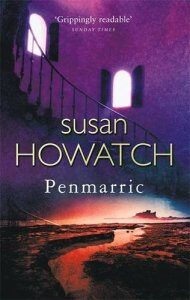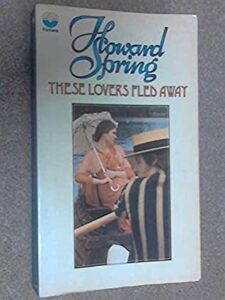Reading Older Books: “These Lovers Fled Away” by Howard Spring
It was May 17 when I commenced this Reading Older Books series, with the promise of reporting back to you on four older books.
Two of the five have already been reported upon (Amazons II and Maquis), and several off-course substitutes have snuck onto the reading tracks:
Prodigal Summer
The Periodic Table
So I thought I should “hurry up already” and get the posts for the outstanding two, These Lovers Fled Away by Howard Spring and The Grandiflora Tree by Shonagh Koea, to the masthead in short order—starting with the former.

These Lovers Fled Away is what I think of as classic, 20th-century popular fiction. The family saga endured from John Galsworthy’s Forsyte series, with the first book published in 1906, through to the gothic versions of the 1970s, e.g. Susan Howatch’s Penmarric and The Rich Are Different. Although the genre has waned since that time, These Lovers Fled Away was first published during its heyday, in 1955.

The “family” umbrella is looser in Howard Spring’s novel, which chiefly follows four men (Chad, Billy, Eustace, and Greg) and the woman (Rose) who ends being lover or wife to three of them, from their childhood at the turn of the 19th/20th centuries, through to the post WW2 and Cold War eras. Yet the story also encompasses their parents or elder relatives—Chad’s uncle and Rose’s aunt are significant in this respect—as well as their lovers, spouses, and children.

In this case, too, the familial relationships include blended families: for example, Chad’s widowed mother remarries the father of Eustace and Phoebe (who later becomes Greg’s wife.) So it’s definitely an intergenerational novel, with the later part also focusing on the third generation, particularly Henrietta (Rose and Eustace’s daughter, and Chad’s stepdaughter) and Penelope, the daughter of Greg and Phoebe.
As is sometimes the way with multiple characters and intergenerational novels, characters that are front and centre at the outset fade as the story progresses. This is true of both Billy and Greg, with the latter chiefly seen in relation to Penelope’s increasing part in the story. Of the two, Billy is definitely a character I would have liked to get more page time, as I found him one of the more interesting personalities at the outset.
The story is basically a personal history of the characters, told in counterpoint to the large events of the times. In that sense it’s more a social history than a recounting of significant events, albeit with the two world wars and the Great Depression as backdrop.

I enjoyed the book, although I found the post WW1 half less engaging than the characters’ early years. I would probably have liked it more, too, if the two main characters, Chad and Rose, had been more engaging. I did not really warm to either of them. In fact, Chad was somewhat full of himself, besides being an absolute “cad and bounder” (to use the terms of his era 😉 ) toward his first wife. And for me, Rose never really came to life.
Fortunately, in a book with multiple central characters there were other characters to fill the engagement gap. Chad’s Uncle Arthur, in my humble opine, was the star of the show: the novel’s moral compass and sterling worth from top-to-toe. (From which I’m inclined to think that some of Chad’s failings were intentional.) Rose’s aunt, Miss Orlop, is a free spirit and full of verve, while the impresario, Max Middlemiss is the somewhat hackneyed larger-than-life, salt-of-the-earth-with-a-heart-of-gold character who nonetheless comes to life on the page.
The personality that dominates the novel, though, is Eustace: a poet modeled somewhere between Byron and Brooks, he is physically wrecked in World War One, but continues to shape and influence those about him: often negatively but always through the sheer strength of his personality.
Clearly, therefore, this is a story that is all about the people and their intersecting lives, rather than the historical events—which is why I call it a family saga rather than an historical novel. Nonetheless, the reader still gets a sense of both events and changes, so if you enjoy historical fiction, as well as character-driven storytelling, These Lovers Fled Away may very well repay the investment of your time.
Assuming you can find a copy, but some libraries may still have a copy in stacks and it is still available secondhand. I read a Book Club edition, 447 pp, from the bookshelf of a holiday home. 😉
Books of similar kind, besides those already mentioned above, include Colleen McCullough’s The Thorn Birds; To Serve Them All My Days by RF Delderfield; and Brideshead Revisited by Evelyn Waugh.










